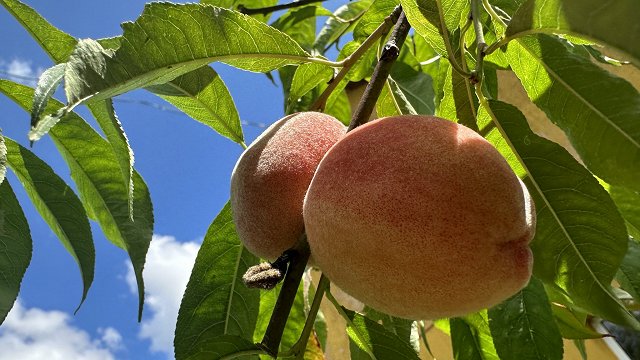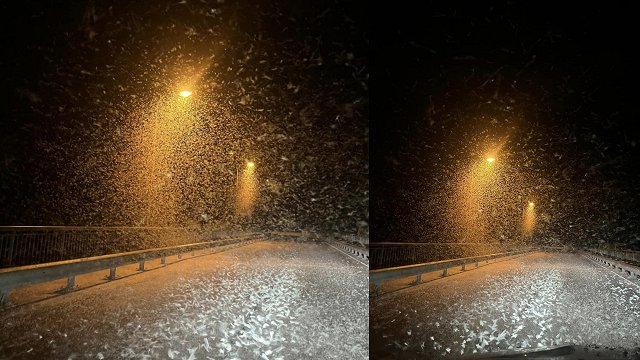So small that you can only see it under the microscope – an inspector is looking for a pest in the cluster of moving little things.
"A very dangerous quarantine organism, pine wood nematodes, can be imported with wood packaging material. If it ends up in Latvia, then our pines will be dead," said Gunita Bokuma, head of the Latvian National Phytosanitary Laboratory.
With wood pallets one can also import the Asian long-horned beetle (Anoplophora glabripennis). Latvia has many species of wood-eating insects but most of them feed on weakened or dead trees. The Asian long-horned beetle, on the other hand, feeds on living wood. It had already been found in Finland, where the pest was successfully tackled. But that means the bug can spread to our climates as well.
"The larvae live in the palette, the palette goes unchecked, raw imported, [the beetle] evolves, completes the cycle and drifts into nature. It may also be imported with planting material. The literature cites bonsai trees," Atrtūrs Gluhovs, an entomologist at the National Phytosanitary Laboratory, told LTV.
In Europe, plants have begun to suffer from the burn of bacterial leaves caused by one of the world's most destructive bacteria. In Italy, it destroyed millions of olive trees. A new virus is also spreading, devastating tomato yields.
"A very good example of a green souvenir is tomatoes. Different shapes, different colors, different flavors. So we take a tomato, some smart ones get the seeds, take it home, and plant. Categorically banned!" Bokuma said.
Potato cancer is extremely dangerous because it completely destroys the harvest. This has been observed, for example, in Germany.
"This means no potatoes should be grown for 50 years in that field. We don't have any examples right now. Our land is free and we take great care that this quarantine organism does not show up here," said Jevgeņija Trofimova, senior inspector for the phytosanitary monitoring department of the State Plant Protection Service (VAAD).
Internet sales and parcel delivery also make it easier for pests and diseases to spread.
“Gardeners enthusiasts write to each other – colorful potatoes from South America. And from those countries where cancer is present, simply by bringing and planting, the disease is in our land, in our soil,” Trofimova said.
Plants can hide a potential danger, even if they look healthy. Most quarantine organisms have a hidden developmental phase. Their presence can only be detected in a laboratory. VAAD stresses that plants and planting material may only be imported and marketed with a phytosanitary certificate or plant passport certifying that they have undergone control. But plants and vegetables that have been nicked from an Italian farm or on the Spanish market should remain there.




























